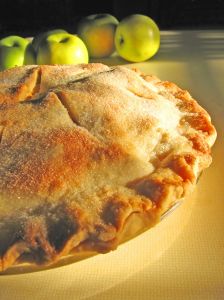A Friday happy break
 When every bite of food information seems to have become judgments over right or wrong and good or bad, it can be refreshing to be reminded that most people still understand the true meaning of food and the comfort it brings.
When every bite of food information seems to have become judgments over right or wrong and good or bad, it can be refreshing to be reminded that most people still understand the true meaning of food and the comfort it brings. This story by Sheryl Nadler of the Hamilton Spectator, will warm the hearts of every medical professional who has cared for a critically ill baby or child in the hospital, and every friend and family member of a seriously-ill little one who has needed medical care at a medical center, often far from home.
Serving up platefuls of compassion
The mom was overwhelmed.
Exhausted. Hungry. Terrified that in the few brief moments she was away from her son's bedside, he would die.
My friends and I could do nothing about her fatigue. Or the brain cancer that was taking Matthew toward his final moments of life.
But we could feed her.
And so we did.
In the kitchen of Ronald McDonald House last Thursday night, we helped wash out Joni-Lyn's plastic containers, refilling them with lasagna and pork roast, chicken and cabbage rolls, biscuits and salad and pie, so she could carry it all back to McMaster Children's Hospital, then take turns with her husband Robert going out into the hallway to eat, since it wouldn't be right to do so in front of Matthew who could no longer swallow food....
I somehow felt as if it was the most important meal I'd ever cooked. Well actually, I did more co-ordinating than cooking. You see, this is an idea that has floated among my friends for months now. Ever since The Chicks first learned of it....Of parents who are so distraught and focused they forget to eat. And of a program called Home for Dinner... and apple pies and lasagna....cabbage rolls and roasts....
For those unfamiliar with Ronald McDonald Houses, they began in 1974 to provide a comfortable home away from home for families of seriously ill children receiving treatment at hospitals. There are more than 245 Ronald McDonald Houses in 26 countries and more than 10 million families have had a homey, supportive place to stay, eat and sleep while their children get medical care.




<< Home